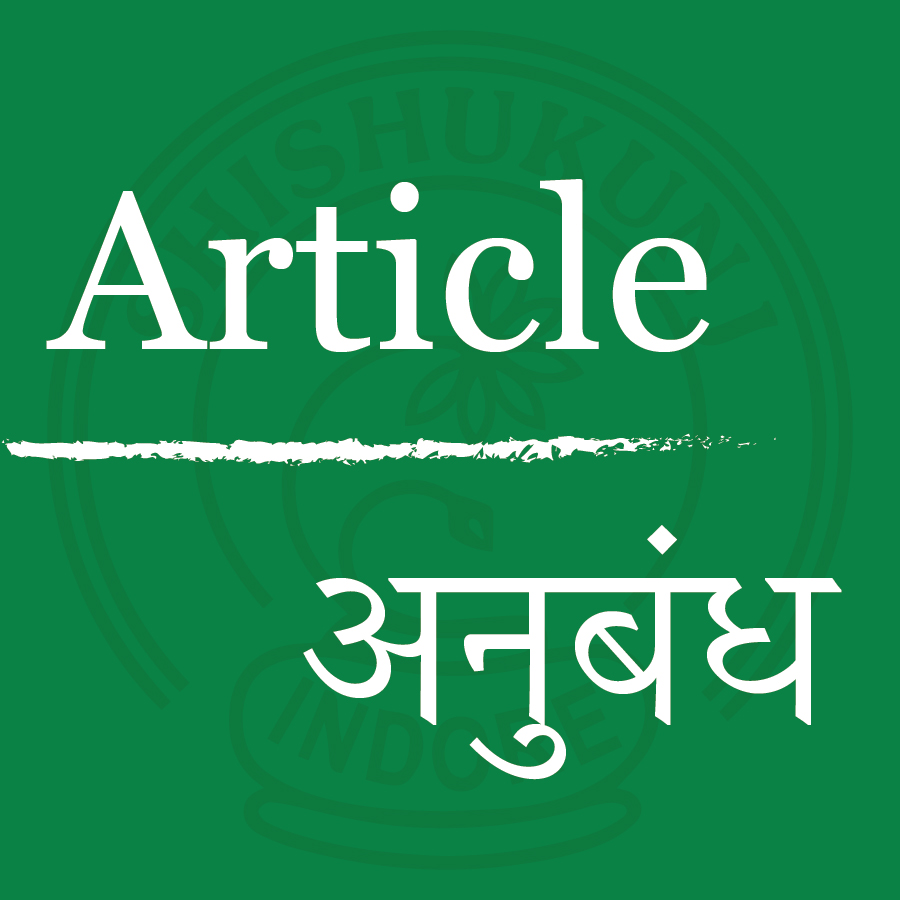
Author: Shreyasi Chelawat, Class IX G
We live our lives through the lens of another’s.
How often do we reach for our phones when we begin reading texts like these?
There is really no certain answer to such a question. Statistically speaking, when, or if, you get through a third of this passage, there’s a high chance that you’ve found another object of interest in the background, a second tab, your screensaver, or even, a stray vein on your hand you’ve “only just observed”.
A goldfish has an attention span of 8 seconds on average.
A human can barely top that, with the mere increment of another quarter second.
I’ve lost 17% of my audience by now, and the 83% still here can only skim this in hopes of being the last one here.
But can we lose all accountability here and blame it on what we consume? Are we all we feed our minds?
No, and, yes.
Between stimulus and response lies a space.
In that space lies our freedom and power to choose a response.
In our response lies our growth and our happiness.
Steven Covey explains no Socratic philosophy through these words, yet we still fight to consume a small tidbit in our instilled habit of joining the rat race to, frankly, slavery.
Take this with an example.
You have seven math problems, an essay due tomorrow, and a party at night.
You’re through with two problems, with a document for your essay and a chat between you and your friend open on your laptop.
Chances are, before you can finish writing the answer for your second equation, a ping from the chat will set your brain off into a frenzy for a “spicy update” to what she’s wearing that night.
Necessary?
Not.
Trendy?
Of course it is.
The thing is, we’ve wired our brains into shorter attention spans, so much so that if said friend sends us a music playlist with songs we haven’t listened to, we’ll give the first one three seconds to impress us and skip over to the next song.
And, surprise, surprise, you’re still not done with the second math problem.
Find an app you catch yourself repeatedly opening to get “a bout of rest before resuming work”.
Scroll over to the history section.
Rave your gaze over to the little rectangular bar that says “shorts: 120 watched”.
Multiply that number by 60.
You’ve spent 2 hours of your day raking mindlessly through short-form content, half of which you haven’t absorbed, and while two hours seems insignificant, think of how those 7200 seconds could have changed your life. There is, really, no long shot here. Sun Tzu, Lao Tzu, Sartre, Clear, and Kafka can ramble on and on about strategy and existentialism and management and whatnot, but when you choose to implement what you’ve gained through those philosophers into those 7200 seconds, how often do you find yourself trying to steal back 6000 of them?
Habits compound.
Snooze your alarm for a five-minute buffer on sleep one day, you’ll find yourself doing it every day of the week.
Ignore a 1% deterioration in your character once, and mathematically, you’re down to zero by the end of the year.
Contrarily, a 0.99% improvement in any aspect of your character compounded daily can exponentially make you 37 times better by nightfall the 365th day.
The problem is, we term, albeit subconsciously, ignorance, bliss.
We try comparing ourselves with people we come across on social media, or those around us, mostly ignoring motive, but always relaying our focus on “how much better they are”.
How often do you go to a park? Ever do it in absolutely no company but your own?
(Your phone leaves, too.)
We take simple tasks, like riding a metro every day, sitting on a swing alone, or even watching someone officiate a wedding, and pick up our phones, having lost curiosity about what the person in front of us might be doing.
No “Lady Gaga’s STUNNING Met Gala outfit shocks everyone; Kardashians respond” or “Extreme Fortnite gameplay: Last one standing?” may compare to what you’re losing right now, and you’re voluntarily feeding your brain information to fry those neurons you have left, turning your practicality on ‘Do Not Disturb’ instead of that little death trap, for lack of a better word, in your hands.
You are what you consume. Consume unnecessary content daily, you’re losing sight of that test you have next week. Short-form content can only be beneficial if you’re absorbing any important, valuable information through that video. Otherwise, it’s just a grey day into scrolling mindlessly and finding cheap sources for that little dopamine kick (that you might find anyway by focusing on tasks throughout your day) and picking up that phone after every math equation or short-answer question for “a five-minute break”, per five minutes of studying, painting, training, or any activity that enhances the use of your time and betters your skill.
In a brief conclusion, accountability is still in our hands. We hold the power to shape our mindset and drive away from what’s making us lose our vision. We are what we absorb, and we’re not making the most of all that until we steer clear of anything that holds us back.
I’m only speaking to 7% of the people who started reading a while ago, and 4% have forgotten half of what I’ve mentioned.
But even to the 3% still here, that essay is still due tomorrow, bud.
